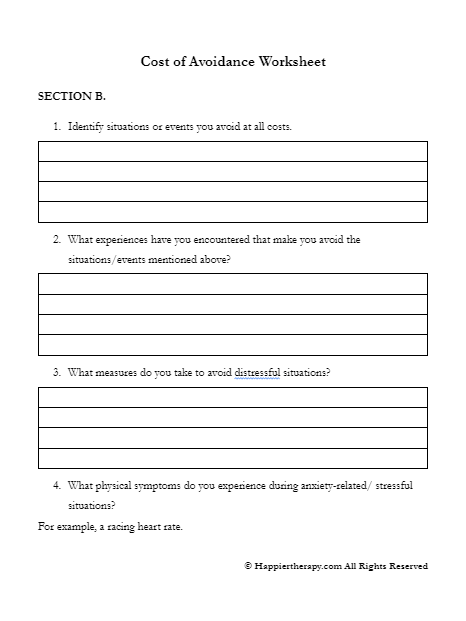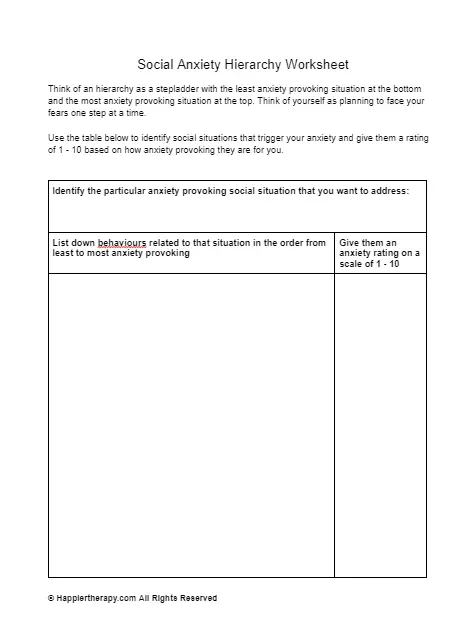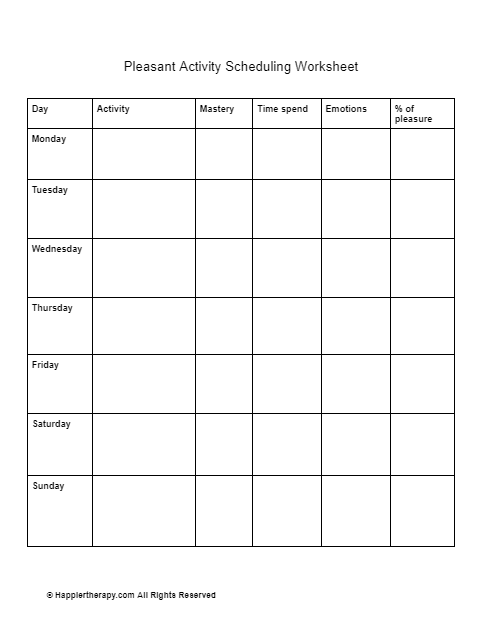The cost of avoidance worksheet
Download Worksheet
What is the theory behind this cost of avoidance worksheet?
The terms “avoidance” and “escape” are used to describe people’s tendencies to either avoid (not approach) or “escape” (quickly depart) potentially threatening circumstances (escape). One of the most subtle forms of avoidance behavior is distraction. As adaptive responses to many forms of suffering, avoidance and flight are common. However, when used in conjunction with other coping strategies, such as acceptance or acceptance with modifications, escape and avoidance can be seen as adaptive. Acceptance and Commitment Therapy (ACT) is a form of psychotherapy that urges patients to stop resisting or beating themselves up over their thoughts and feelings and instead accept them.
How will the worksheet help?
People tend to steer clear of things, events, and circumstances that are either overpowering or upsetting for them. The avoidance of the situation may feel like an escape at the moment, but in the long term, it will always be detrimental to the mental health of the individual. This worksheet will help determine the expenses of avoiding any feelings that individuals don’t want to feel and that they want to escape from.
How to use the worksheet?
The worksheet can be provided to the client during the session. Therapists will instruct clients to Identify their feelings, even if it’s just one or two that they had today, and then write down the method that they use to get rid of them. And what other expenditures were there associated with utilizing that avoidance strategy? It will give them further opportunities to investigate different choices that they could have made instead of avoiding them.
Was this helpful?
References
1.-
The costs of avoidance worksheet. (2022, October 10). Mental Health Worksheets.https://mentalhealthworksheets.com/the-costs-of-avoidance-worksheet/
2.-
Avoidance worksheets & handouts. (n.d.). Psychology Tools. https://www.psychologytools.com/professional/mechanisms/avoidance/

 By
By


